We've been so worried about volumetric scans possibly robbing celebrities and performers of their agency and right to control their image that, somewhere along the way, we forgot that scans may not always be necessary to produce passable holographic performances.
That's the dynamic in play as UK-based Base Hologram has announced a new musical tour of its holographic version of Whitney Houston, the legendary singer who died tragically back in 2012.
- Don't Miss: How 'Ready Player One' Used Microsoft's HoloLens to Help Build Its VR Cinematic Universe
The tour, called "An Evening With Whitney Houston: The Whitney Houston Hologram Tour," will feature a digitally constructed 3D version of Houston, as well as the singer's original music on a real stage designed to present to thousands of fans in major stadiums. Along with the hologram, the audience will be presented with real human dancers performing alongside the 3D version of Houston.
Of course, the debate around the ethics of such performances, which may or may not go against the wishes of the deceased performer, began in earnest years ago when a holographic Tupac was presented at Coachella, ironically, in the the same year as Houston's death. In that case, the performer's mother, Afeni Shakur, was quoted as saying that she was "thrilled" with the idea.

"I think digital humans and virtual beings will be more common throughout future games, experiences, and platform content. Today, this is a culture shock because [the public isn't] used to the software solutions and computing resources we have at our fingertips," Travis Cloyd, professor of XR at iSTAR at Florida International University and co-founder of Worldwide XR, told Next Reality. "Today is all about innovation and these iconic figures will have their stories told in each medium. This is equal to photography and video as it's just another form of capture in today's world."
As for Houston's digital doppelganger, it turns out that the company behind the production has the direct involvement of Houston's family.
"Whitney is not with us but her music will live with us forever. We know we made the right decision partnering with Base because they understand how important it is to produce a phenomenal hologram," said Pat Houston, Houston's former manager and the CEO of The Estate of Whitney E. Houston, in a statement. "They also know that engaging her fans with an authentic Whitney experience would resonate worldwide because of the iconic status that she created over three decades. Her fans deserve nothing less because she gave nothing less than her best."
Ok, so the person Whitney Houston trusted with her legacy is on board, so, on some level, fans can attend these holographic shows guilt-free as they embrace the singer's historic catalog of music framed by the virtual stylings of her 3D image. Still, while the Houston situation appears to be the best-case scenario, what will happen to the many singers and actors whose estates aren't in such order before their death?
Will holographic performances, facilitated by sophisticated 3D rendering at the least, and volumetric scanning at best, turn the art and presence of our favorite artists into digital assets on the same level as Mickey Mouse in terms of corporate control?


Although my favorite example of how this holographic rights scenario may play out is the obscure film The Congress (starring Robin Wright), a more recent and accessible tale depicting a "what if" around these issues came via Black Mirror. The episode, titled "Rachel, Jack and Ashley Too," starred real-life singer Miley Cyrus who, after being tricked and put into a coma by her manager, watches as her unscrupulous manager presents the world with a new AI-generated song delivered by a volumetrically scanned version of the incapacitated singer.
Sure, this all may sound a bit too sci-fi to be real... that is, if you're not in touch with the state of the art in immersive entertainment. VR experiences for the recent Blade Runner 2049 film and AR experiences for the HoloLens have already been successfully produced at Microsoft's Mixed Reality Capture Studios. And a number of independent volumetric capture studios are popping up every month. The holographic genie is out of the bottle.

"As it relates to celebrity rights and management, this is a very important issue and we only work with families and estates once they've approved the concepts and campaigns," says Cloyd, whose Worldwide XR company is working with Hollywood studios to bring James Dean and other classic actors back to life on screen.
"It's always [with] their full support and our focus is to keep their legacy alive for future generations who wish to engage in these experiences. We work closely with the families and do all we can to protect their best interest, but also focus on partnering with most innovative minds."
The only question now is whether today's artists truly understand what AR, VR, and holographic technology mean in terms of securing future intellectual property and performing rights. In The Congress, there's even an entire sequence devoted to the exercise of negotiating virtual human holographic performing rights.
It's true that nothing beats seeing an artist in the flesh, but if you really love a particular artist, are you going to pass up the opportunity to see "a version" of that artist in a well-produced live show? Before you claim "no," just remember that virtual character Hatsune Miku already has a successful live performance track record, and her YouTube videos have more views than many of your favorite human music artists. But Miku is just one of the best known among virtual performers, as new, popular virtual characters like AI Angel are popping up every day.
And if you think these are outlier events, perhaps you missed the fact that 2019's Alita: Battle Angel, the Robert Rodriguez-directed film featuring a virtual character in the lead role with human supporting actors, earned over $400 million in ticket sales worldwide. This is happening, no matter how silly or morally questionable it may seem to your analog sensibilities.
One of Houston's biggest hits was "I Will Always Love You," and now it seems she was right all along. If you're a Houston fan, once you pick your brain up off the floor, you can check out availability for her European tour dates, which kick off in the UK on February 25.
Just updated your iPhone? You'll find new features for Podcasts, News, Books, and TV, as well as important security improvements and fresh wallpapers. Find out what's new and changed on your iPhone with the iOS 17.5 update.






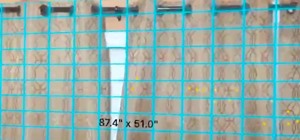


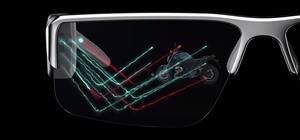

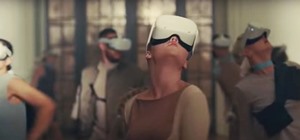
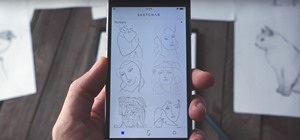







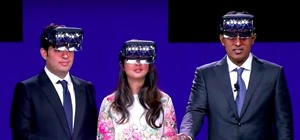

Be the First to Comment
Share Your Thoughts